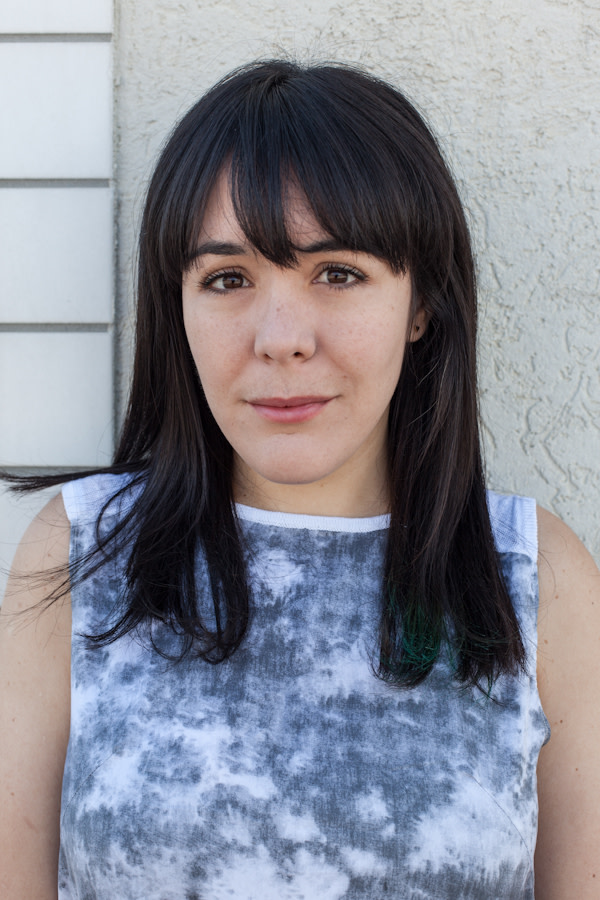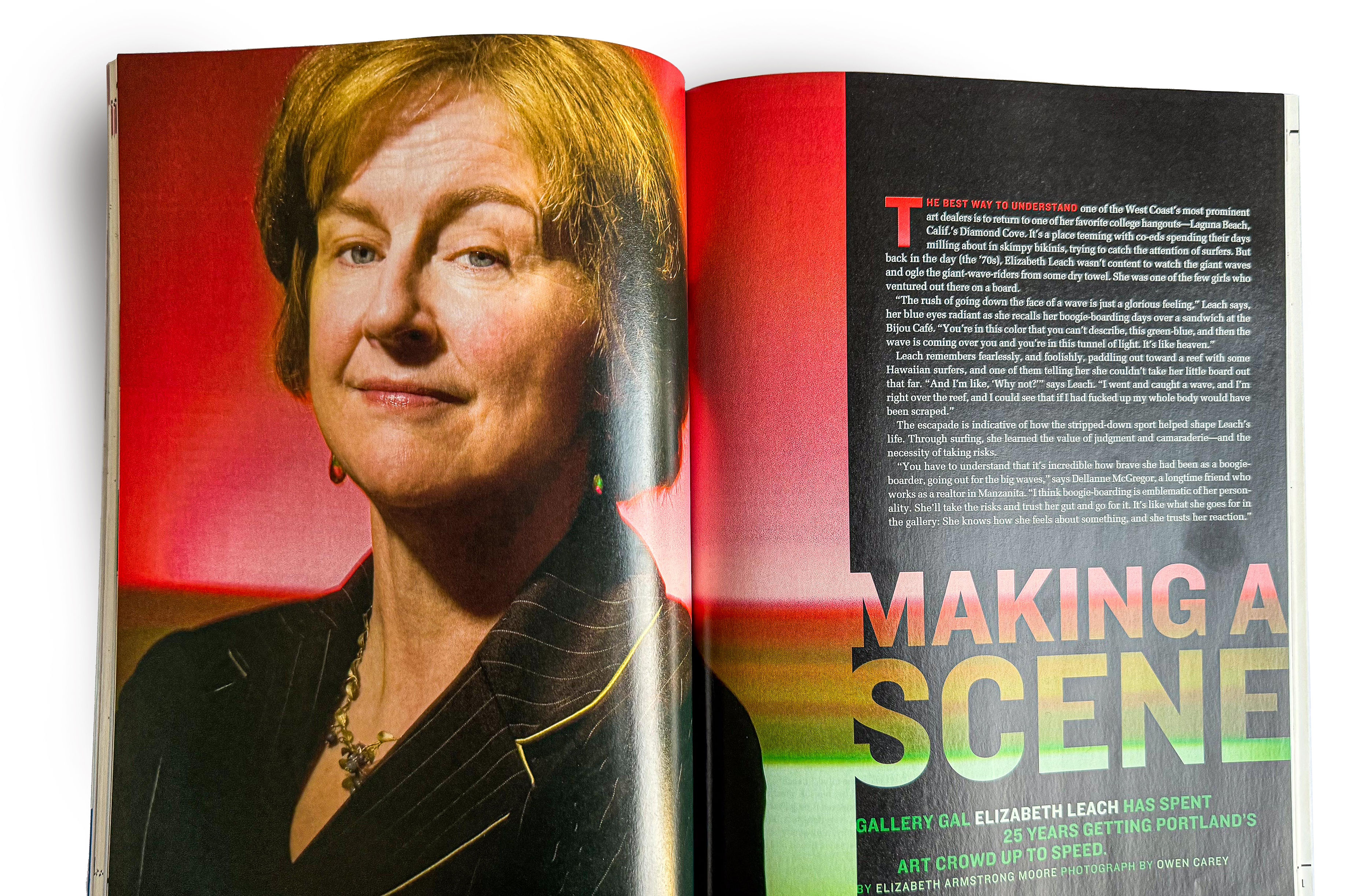Breaking News: Meet Disjecta's New Curator-In-Residence

Disjecta's new curator-in-residence, Summer Guthery
Image: Courtesy Summer Guthery
Disjecta is just about to announce the selection of its second curator-in-residence, who will take over the reins of the Warhol Foundation–funded project from Josephine Zarkovich. The new face is Summer Guthery, an independent curator and writer based in New York City (although she has been in Los Angeles since February to program a series of events at LAXART).
Guthery comes from Bard College’s Curatorial Studies program (the cross-coastal frenemy of Zarkovitch’s California College of the Arts’ Curatorial Practice program) and has worked with Artists Space, School of Visual Art, New York, and the Hessel Museum, among others. She is also going to play a role in the upcoming Performa, New York’s performance biennial, where she was a fellow in 2009. But we wanted to go beyond the resume with a quick introductory interview covering where she's coming from and where she wants to take the season, not to mention her small-world connection to Yale Union's curator Robert Snowden. Guthery, along with the incoming curator of the Portland2014 Biennial, will do a presentation and Q&A at 923 NW Flanders (next to PDX Contemporary) on May 18 as a full intro to the community.
Ladies and gentlemen of Portland, Summer Guthery:
Culturephile: Give us a quick intro: what drew you to curating?
Guthery: I have been working loosely in the field since I was about 20. My background is in writing and philosophy, but what I have always enjoyed more than anything was spending time in artist studios. I like seeing the process, ideas still in flux, the context. I put together independent shows in the small town I am from then I moved to London after school and did the same in raw spaces there before moving to New York nine years ago. In New York, I have primarily been an independent curator and went to graduate school at Bard CCS. This Fall I am beginning to work with Performa, the NY performance biennial, programming performances throughout the city the entire month of November. Some of what I am doing there will ideally tie back into my work with Disjecta.

The dramatic view from the balcony of the office that housed Guthery's and Snowden's 'Chrysler Series.'
Image: Courtesy Summer Guthery
It’s admittedly reductive, but share the one or two biggest milestones in your journey as a curator?
The project that has meant the most to me was The Chrysler Series, a one-year program that I did with Robert Snowden, who is now curator at Yale Union. The series was a program of single evening performances, readings, and screenings that took place for a small audience in a borrowed office on an upper floor of the Chrysler Building. The setup for each evening is simple—I borrow a friend’s fathers’ office, moving all of the rolling chairs, conference phones, and fake plants down the hall, to host around fifty invited guests chosen by the artist. There was not a clear A-to-B relationship in the programming, but it could be divided into contemporary performance, readings, and screenings; and re-presentation of past artistic, ideological, and philosophical dialogues that seem to have been relegated to history too quickly. It was a luxurious space to work in, as visitors seemed to spend more time looking more closely than in other exhibition contexts. I liked how the entire process was slowed down. A good friend, Linda Norden, gave us the incredible compliment that it was “like stepping into a still warm brain.” A lot of my ideas constellate around what was done there.
Tell us a little about your interests and practice as a curator?
My interests are wide-ranging, but what draws me to work is an artistic intelligence—a way of commenting or being curious that is open-ended and does not have to follow all of the rules. How to work is an important question. I enjoy being in an artists' studio talking about ideas that are in the work or circulating around it. All of my best projects have started here. I am interested in work that does not solve itself—when there is an element of being unfinished.
What are you most excited about in the art world right now?
I am interested in small- and medium-sized projects that work with large-scale integrity. Anthony Huberman's the Artist Institute in New York. Chris Fitzpatrick's Objectif Exhibitions in Antwerp, Belgium. Rupert in Vilnius, Lithuania. White Flags in St. Louis. Cleopatra's in Brooklyn. Locally Yale Union. All are writing honest questions on how work can be presented in a way that keeps its essence.
Introductory presentation by Guthery and the curator of the Portland 2014 Biennial
923 NW Flanders (next to PDX Contemporary Art)
May 18 at 6:30
The emphasis of the curator-in-residence program is to place regional ideas in dialogue with international contemporary art practice. How will you do this?
This is one of the most important considerations in the programming I am thinking through. My practice could be described as less populist and more community-oriented, which does make this residency an interesting challenge. Since receiving the fellowship, I have made two trips to Portland to begin to meet artists, visit the schools, meet other curators and writers, and, of course, get to know Bryan Suereth [Disjecta's executive director] and his team. In the larger region, I just visited Vancouver and soon am going to Seattle. As I get a sense of what people are doing and thinking about locally, I plan to draw out connections with art practice elsewhere.




